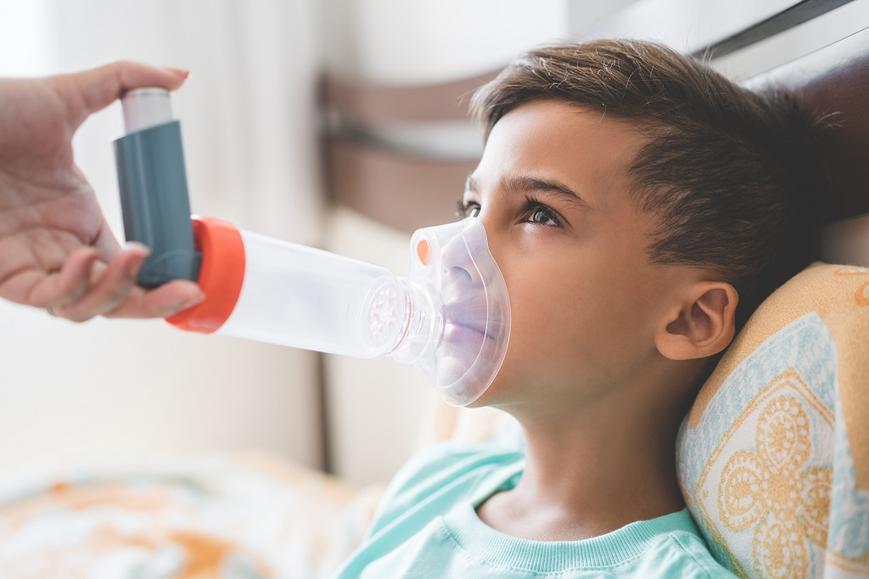
We are living through unprecedented times - the COVID-19 pandemic. Many parents worry about their children falling ill with SARS-CoV-2 (the virus that causes COVID-19). This is especially a concern if the child has bronchial asthma, the most common chronic disease in children.
Common presenting symptoms of COVID-19 are fever, cough, shortness of breath or difficulty breathing. Less common presenting symptoms are lethargy, sore throat, loss of taste or smell, vomiting and diarrhea. These symptoms can be similar to many other common viral respiratory illnesses, which are also triggers of asthma exacerbation.
Children with Asthma are not at higher risk of COVID-19
Current studies suggest children are less likely to fall ill with COVID-19 disease, and even if infected, most will have mild disease. These studies also suggest that children with asthma are not at increased risk of catching COVID-19 infections nor at risk of more severe COVID-19 disease. Keeping asthma well controlled is important for the prevention of severe COVID-19 disease in asthma.
Most children with asthma remain well during this period due to increased adherence to controller medications, improved air quality, reduced exposure to viral illness due to reduced school days, social distancing, use of face masks and better hand hygiene. A small number of children may experience more symptoms due to home confinement with increased exposure to indoor allergens e.g. house dust mites, mold, tobacco smoke; or increased stress and psychological factors.
Many children with asthma also suffer from allergic rhinitis which results in frequent sneezing, nasal itch, congestion and rhinitis. Associated allergic rhinitis needs to be well controlled for better control of asthma, to avoid sneezing and rhinitis for reduced transmission of infection and to avoid frequent touching of nose, face and eyes.
What precautions can parents take?
To reduce the risk of flare of asthma or COVID-19 disease in children, parents must ensure the following:
- Keep to the prescribed medications for allergic rhinitis and asthma and use these according to your written asthma action plan. Adherence to the use of prescribed controller medications will help reduce the risk of an asthma attack being triggered by any respiratory virus, including COVID-19
- Keep to your scheduled follow up appointments as recommended by the doctor as this is important for good monitoring of and control of disease. The hospital or clinic and your doctor would have taken the necessary precautions to ensure your child’s safety. Your doctor may also recommend the use of video teleconferencing for review of stable asthma if it is not possible for your child to visit the clinic.
- Engage with your doctors early in case of uncertainty or concerns. Respiratory symptoms associated with COVID-19 as described may be very similar to asthma symptoms.
- Be on schedule with recommended childhood vaccinations including COVID-19 and influenza vaccines. This will reduce the incidence of preventable infectious disease including influenza disease which may be have similar symptoms to COVID disease or result in a more severe attack of asthma.
- Comply with the locally prescribed measures for prevention of COVID-19 disease including use of face masks and or face shields, physical distancing and hand hygiene.
As the COVID-19 pandemic evolves and new information is rapidly made available, prevention and treatment recommendations may change. Please reach out to your doctor early for any questions or concerns.





